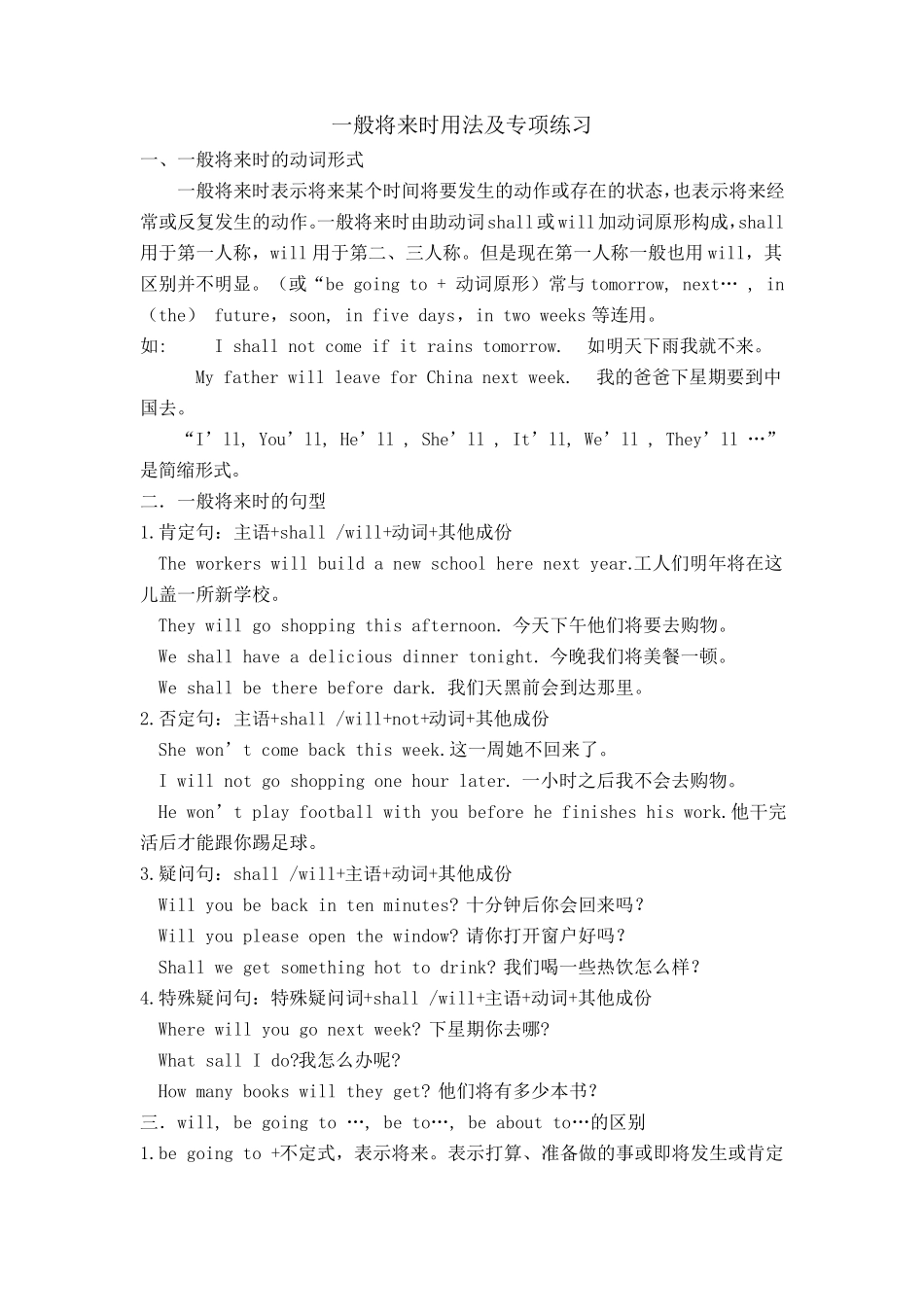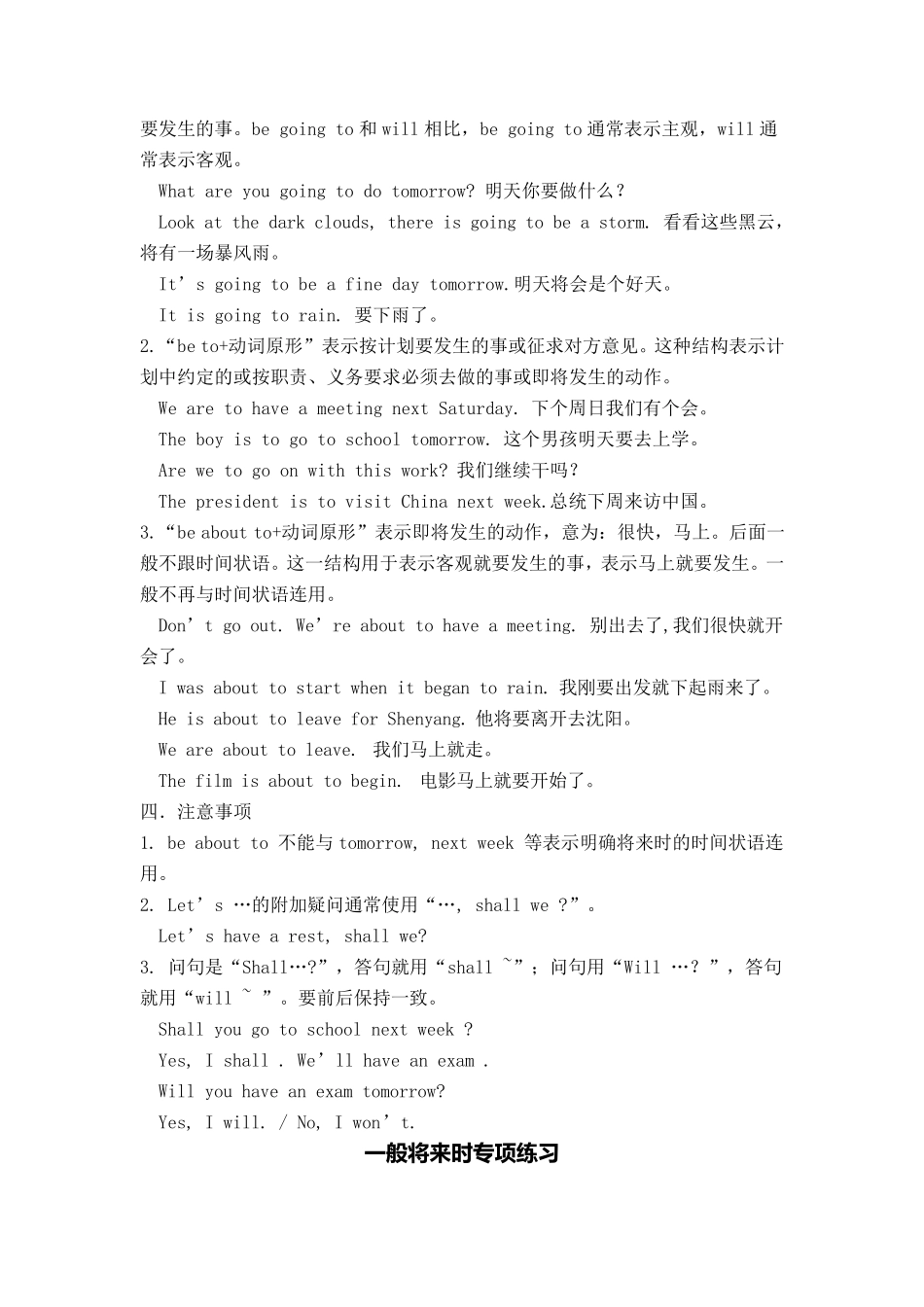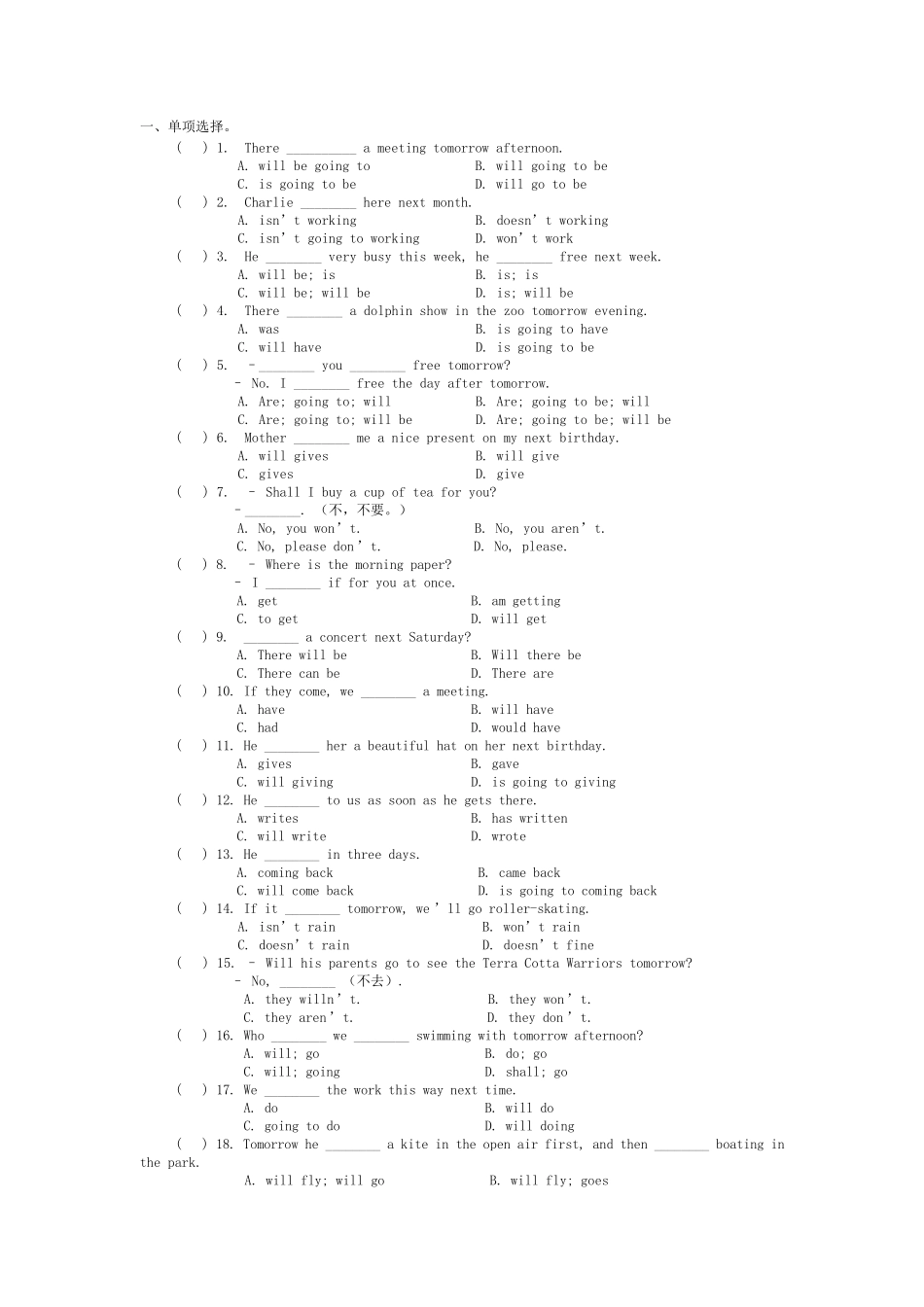一般将来时用法及专项练习 一、一般将来时的动词形式 一般将来时表示将来某个时间将要发生的动作或存在的状态,也表示将来经常或反复发生的动作。一般将来时由助动词shall或will加动词原形构成,shall用于第一人称,will 用于第二、三人称。但是现在第一人称一般也用will,其区别并不明显。(或“be going to + 动词原形)常与tomorrow, next… , in (the) future,soon, in five days,in two weeks 等连用。 如: I shall not come if it rains tomorrow. 如明天下雨我就不来。 My father will leave for China next week. 我的爸爸下星期要到中国去。 “I’ll, You’ll, He’ll , She’ll , It’ll, We’ll , They’ll …” 是简缩形式。 二.一般将来时的句型 1.肯定句:主语+shall /will+动词+其他成份 The workers will build a new school here next year.工人们明年将在这儿盖一所新学校。 They will go shopping this afternoon. 今天下午他们将要去购物。 We shall have a delicious dinner tonight. 今晚我们将美餐一顿。 We shall be there before dark. 我们天黑前会到达那里。 2.否定句:主语+shall /will+not+动词+其他成份 She won’t come back this week.这一周她不回来了。 I will not go shopping one hour later. 一小时之后我不会去购物。 He won’t play football with you before he finishes his work.他干完活后才能跟你踢足球。 3.疑问句:shall /will+主语+动词+其他成份 Will you be back in ten minutes? 十分钟后你会回来吗? Will you please open the window? 请你打开窗户好吗? Shall we get something hot to drink? 我们喝一些热饮怎么样? 4.特殊疑问句:特殊疑问词+shall /will+主语+动词+其他成份 Where will you go next week? 下星期你去哪? What sall I do?我怎么办 呢 ? How many books will they get? 他们将有 多 少 本 书 ? 三.will, be going to …, be to…, be about to…的区别 1.be going to +不定式,表示将来。表示打算 、准 备 做 的事 或即 将发生或肯定要发生的事。be going to 和will 相比,be going to 通常表示主观,will 通常表示客观。 What are you going to do t...


